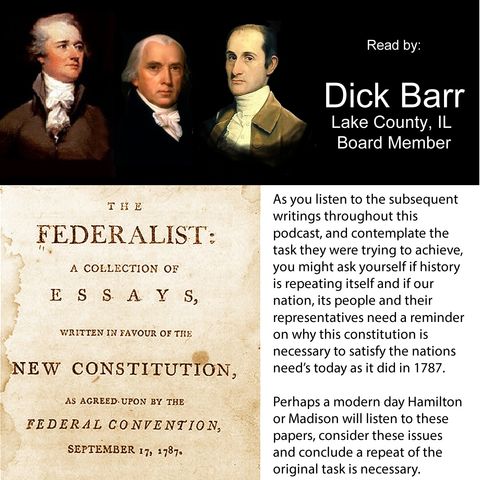Hamilton begins by telling the people that in the previous papers he has tried to convince them of the importance of the Union to "political safety and happiness." In this essay, he changes the theme to the "insufficiency of the present confederation to the preservation of the union." He argues that the majority of the people agree that the present form of government will eventually lead to "impending anarchy." He continues that the United States has reached the "last stage of national humiliation," because of large debts, territories in the possession of a foreign power, a lack of military, a lack of money, inability to navigate on the Mississippi River, lack of commerce, lack of respect by foreign powers, decrease in value of property, and unavailability of credit. In sum, because of "national disorder, poverty, and insignificance." Hamilton urges that the country must firmly stand for safety, tranquility, dignity, and reputation. He attacks the supporters of the Articles of Confederation, claiming that though they admit that the government is destitute of energy, they stand against "conferring upon it those powers which are requisite to supply that energy," wanting instead, something that is impossible, the augmentation of federal powers without decreasing the powers of the states. To Hamilton, the biggest problem in the existing government is the principle of legislation for states in a collective manner, which creates multiple sovereigns. Under this situation, the laws of the nation, though constitutionally binding, become merely suggestions that the states can choose to follow or not follow. While he sees nothing wrong with compacts between states, like such treaties that exist throughout the world, from experience he believes that little dependence can be placed on such agreements. He believes that the states of the country could stand in similar relation to each other, and it would not be ideal but would be "consistent and practicable." But if there is still some desire for a national government, it must take on different characteristics from a league of governments: we must extend "the authority of the union to the persons of the citizens, the only proper objects of government." The very idea of a government implies the power of making laws and those laws must contain a consequence, a penalty, applied by the military or the court. Because no system exists under the Articles of Confederation that properly carries out the law (no national court system), the government is useless. For Hamilton, government was created because the passions of men do not conform to the "dictates of reason and justice" and groups of men act with greater intelligence than individuals alone. Hamilton supposes that this is because reputation has a less active influence. In addition, he believes that because of the nature of sovereign power, people become obsessed with their own power. A meeting of many sovereign powers, then, like the Articles of Confederation, creates problems because a love of power means that people fail to compromise. The business of the government, therefore, cannot be carried out under this system and national interests become subservient to individual desires and wishes.
Alexander Hamilton, finally, specifically attacks the Articles of Confederation as failing because the system was destined to fail. It did not happen all at once, but instead, gradually, progressing to the point that things have become a "stand-all," with everyone "yielding to the persuasive voice of immediate interest and convenience, till the frail and tottering edifice seems ready to fall upon our heads and to crush us beneath its ruins."

